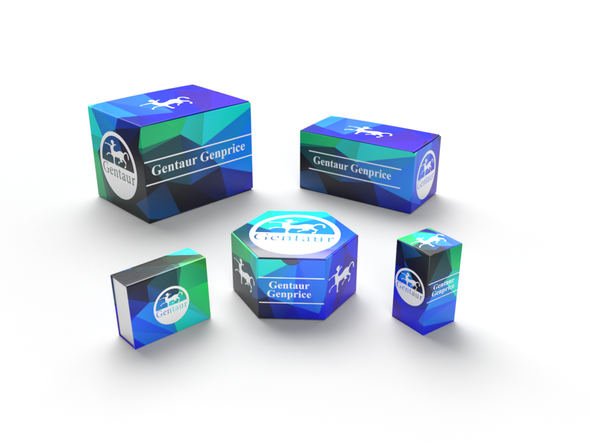Description
Bst2 Antibody | 4661 | Gentaur UK, US & Europe Distribution
Host: Rabbit
Reactivity: Human, Mouse
Homology: Predicted species reactivity based on immunogen sequence: Rat: (83%)
Immunogen: Bst2 antibody was raised against a 18 amino acid synthetic peptide near the amino terminus of the mouse Bst2.
The immunogen is located within amino acids 60 - 110 of Bst2.
Research Area: Infectious Disease
Tested Application: E, WB
Application: Bst2 antibody can be used for detection of Bst2 by Western blot at 1 - 2 μg/mL.
Antibody validated: Western Blot in human samples. All other applications and species not yet tested.
Specificiy: N/A
Positive Control 1: Cat. No. 1224 - Daudi Cell Lysate
Positive Control 2: N/A
Positive Control 3: N/A
Positive Control 4: N/A
Positive Control 5: N/A
Positive Control 6: N/A
Molecular Weight: N/A
Validation: N/A
Isoform: N/A
Purification: Bst2 Antibody is affinity chromatography purified via peptide column.
Clonality: Polyclonal
Clone: N/A
Isotype: IgG
Conjugate: Unconjugated
Physical State: Liquid
Buffer: Bst2 Antibody is supplied in PBS containing 0.02% sodium azide.
Concentration: 1 mg/mL
Storage Condition: Bst2 antibody can be stored at 4˚C for three months and -20˚C, stable for up to one year. As with all antibodies care should be taken to avoid repeated freeze thaw cycles. Antibodies should not be exposed to prolonged high temperatures.
Alternate Name: Bst2 Antibody: GREG, Bst-2, CD317, C87040, DAMP-1, 2310015I10Rik, Bone marrow stromal antigen 2, BST-2
User Note: Optimal dilutions for each application to be determined by the researcher.
BACKGROUND: Bst2 Antibody: Bst2 was first identified as a novel terminal B-cell-restricted antigen termed HM1.24 that is expressed on certain bone marrow cells as well as other tissues. The surface expression of Bst2 on fibroblast cell lines facilitated the stromal cell-dependent growth of DW34, a pre-B-cell line, suggesting that this protein is involved in pre-B-cell growth. Later experiments also showed it to be upregulated in several myeloma cells. More recently, Bst2 was identified an inhibitor of retroviral release from human cells whose activity is antagonized by the HIV-1 accessory protein Vpu. While Bst2 caused retention of virions on cell surfaces or endocytosis into Bst2-positive compartments, its depletion abolished the viral requirement for Vpu for virus release. This activity may represent a potential therapeutic strategy for the treatment of HIV/AIDS.






